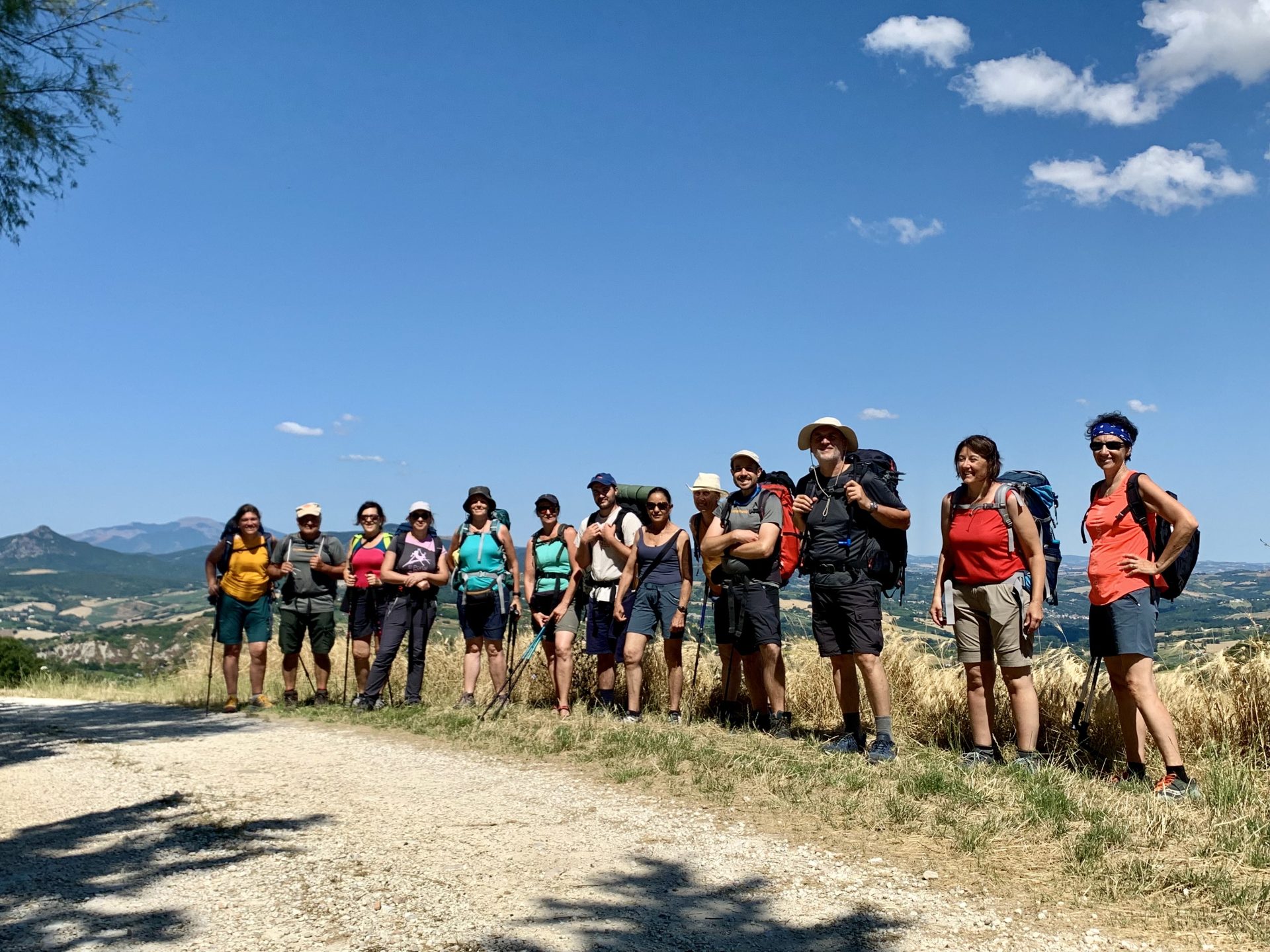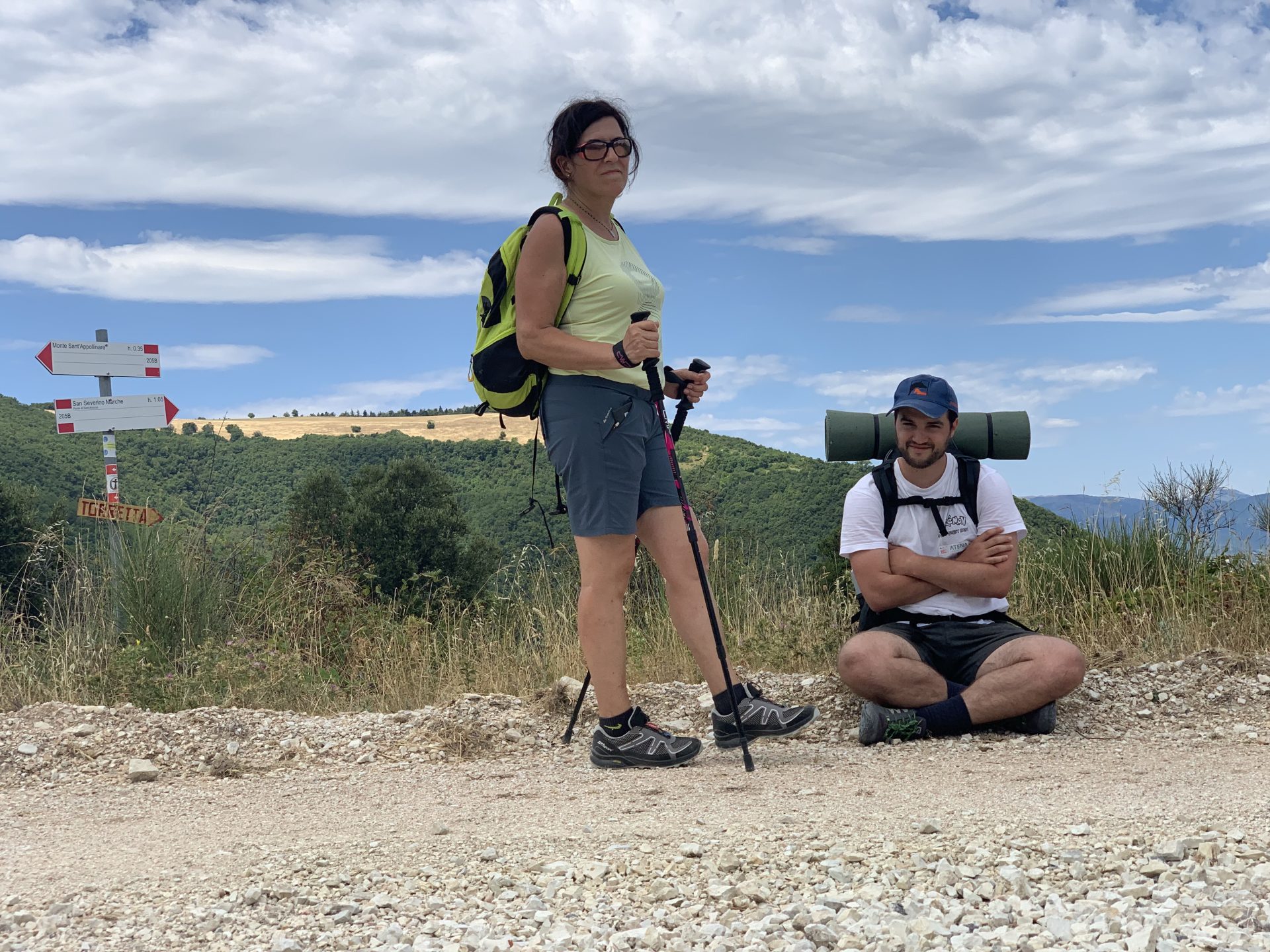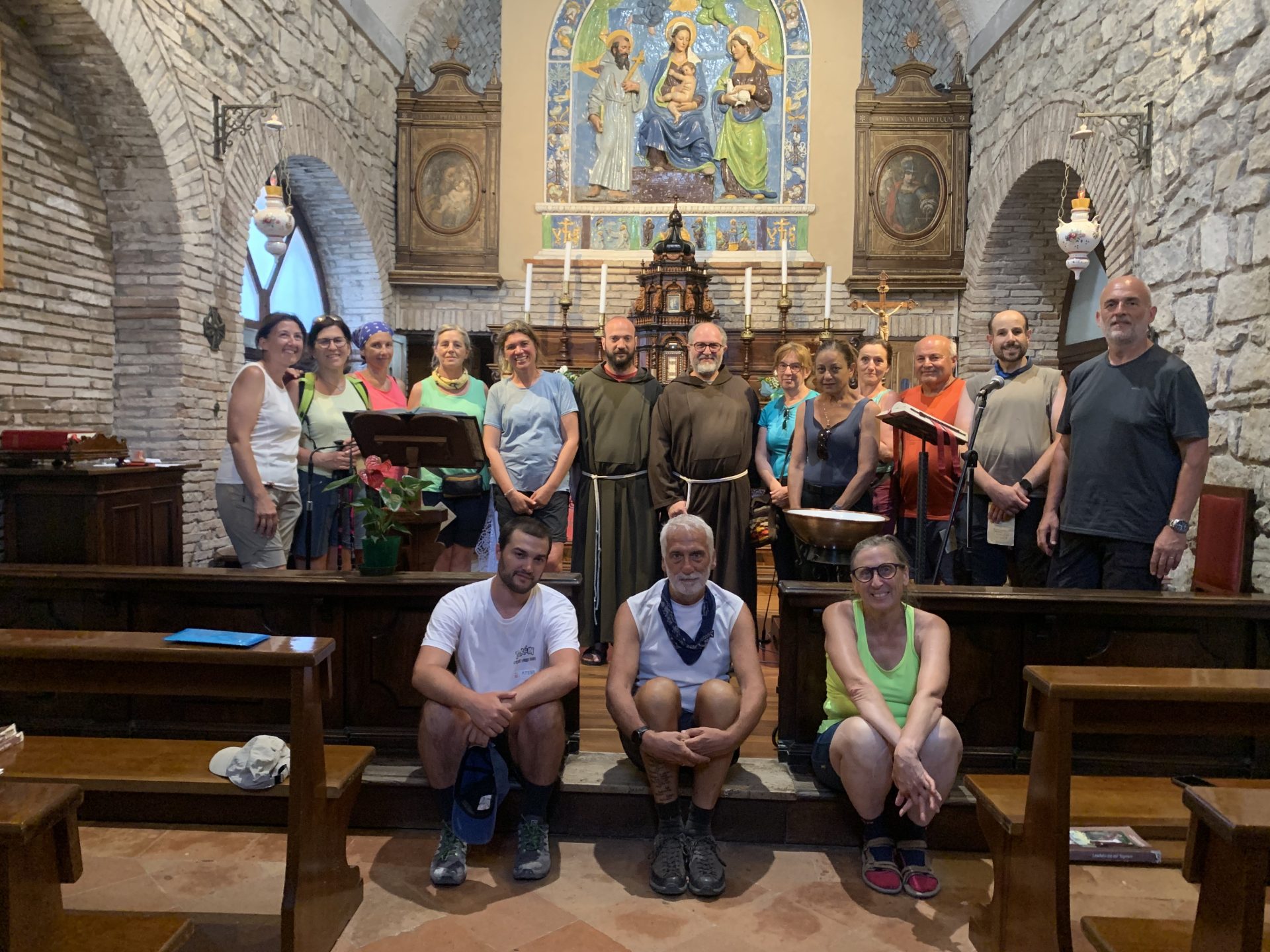On the road with Don Massimo, to learn the art of living together

One foot in front of the other, step by step, something simple and extraordinary happens: the soul aligns with the body, and the gaze opens to a world that, too often, the frenzy of daily life makes us forget. The senses awaken and return to authentic emotions that seemed lost. The act of walking ceases to be merely a movement and becomes a necessary and indispensable gesture, even when fatigue sets in. Walking becomes a metaphor for life itself . A journey that allows us to listen to creation and reconnects us to the world.
"Taking a holiday walking with faith means rediscovering inner spaces where you can question your life. Ask yourself: 'What am I doing?' 'What am I thinking?' 'How am I truly loving others?'" says Father Massimo De Franceschi , parish priest of San Francesco d'Assisi in Padua. He is the soul and spiritual guide of the Compagnia dei Pellegrini, a group born almost by chance that today numbers about twenty people of diverse ages and backgrounds .
It all began in 1987, during the Marian Holy Year. Father Massimo, then a young chaplain in Vigodarzere, also in the province of Padua, led a group of young people on foot along the Brenta River embankment to the sanctuary of Monteortone. That first experience left its mark. Over time, and as the priest moved to different parishes, other young people joined. Thus was born the Company of Pilgrims: not an association, but a community on the move, united by the desire to live their faith with their feet firmly planted on the road and their gaze turned towards the world . During the summer and winter holidays, they set out, backpacks in hand, along paths both well-known and lesser-known, in Italy and abroad.

This summer, from July 14th to 19th, the Company of Pilgrims walked approximately 100 kilometers along the Capuchin Way, from Fabriano to Camerino . Each day begins with a community prayer. Lunch is simple, shared along the way. After a brief rest, the journey continues toward the evening stop, which is often a convent, a hostel, or a small village where the residents spontaneously open the doors of their homes to pilgrims. Once there, everyone gets to work: some make the beds, some do the shopping, and some cook. The day ends with a moment of reflection and prayer, to cherish what has been experienced and prepare for the next day.
The journey becomes a path of inner discovery, where every question finds ever-evolving answers.
"As we walk," says Don Massimo, "we are like a skein of yarn unraveling, kilometer after kilometer. Each of us, in the silence of our own steps, rediscovers ourselves . Then we regroup in small groups, which form spontaneously to support one another. Some listen, some lighten the burden with a joke, some restore balance. Thus, walking also becomes an art of living together."
Don Massimo continues: " Walking is an experiential space in which thoughts become traveling companions . They sit beside you and ask you for a name, a reason, a meaning . The answers, however, never arrive definitively. They are not truths written once and for all, but are revealed little by little, step by step, stage by stage. This is how walking becomes a journey of inner discovery, where every question finds ever-evolving answers. Just like in life: each of us changes, while remaining true to ourselves. We change with age, with experiences, with the places we pass through. And so, yes, our pilgrim journey profoundly resembles life itself."

Walking in a group is also a metaphor for life. Don Massimo explains it well: " Walking together gives you strength and courage, it's different from doing it alone, which is a more tiring experience . The group, like a family, supports you. Sharing your struggles frees you from masks and reconciles you, little by little, with your fragilities, both physical and internal. Walking together is also an exercise in listening and humility. It teaches you that you are not the center of the world, that in the diversity of your steps—some slowing down, some speeding up, some hungry, some needing to stop—there is the awareness that you don't walk to arrive first, but to arrive together. And those who have the most strength must use it to support others, not to distance themselves. True communion is not born from uniformity, but from respecting differences. Walking with others teaches you to communicate, to not always impose your pace or your needs . This is how the group becomes a school of life and authentic relationships."
True communion isn't born from uniformity, but from respecting differences. Walking with others teaches you to communicate, not to impose your pace or your needs. This is how the group becomes a school of life and authentic relationships.
Another central theme of the journey is the encounter with others, often strangers, who meet pilgrims along the way. Some stop to ask if they need anything, others offer a coffee, encouragement, a smile. This year, Don Massimo recounts, "In San Severino, we were welcomed by the Poor Clare nuns with touching care: beds made with fresh-smelling sheets, homemade pastries for breakfast, cold drinks, and freshly picked fruit upon arrival. These simple yet profound gestures remind us how much encounter is a gift ." It wasn't the only gesture of hospitality: "We also slept in an old abbey," Don Massimo continues, "lovingly managed by an elderly gentleman who has transformed it into a small hostel. In this way, he himself keeps alive a village that would otherwise have remained empty and silent. This too is a way of walking together."

Don Massimo adds: " The road teaches a great life lesson: the important thing is not to fix your gaze on the finish line, but to have the courage to keep walking . In life there will always be moments of struggle: sore shoes, blisters, the temptation to give up or look for shortcuts. But the important thing is to keep looking forward."
For pilgrims, ultimately, the true goal is to return home with a new perspective: one that recognizes in hardship an opportunity for growth, in the perseverance of the journey the strength of daily life, and in others an essential companionship. Because without others, we end up lost .
Walking teaches you that you are not the center of the world, that in the diversity of your steps there is the awareness that you don't walk to arrive first but to arrive all together.
"Going back to work this morning was a bit tiring, but I'm still living wrapped in a cloud of gratitude," pilgrim Claudia writes to Don Massimo . "I'm grateful to each of you for every chat, every reflection, every laugh, and every knowing look. For every silence as we walked together. Or for listening to me. For the moments of prayer and sharing, which make all the difference in our journey. I was hesitant about leaving; I was afraid of the heat, I was afraid of my own limitations, not just physical ones. I would have made a huge mistake staying home. I enjoyed even the effort. I can't wait to get going again."
In the "On Holiday With" series, read also: Traveling together, like in the old days (despite Alzheimer's) : the experience of the Rifugio Re Carlo Alberto – Diaconia Valdese. This is how our mothers make peace with the sea : the experience of the Fondazione Asilo Mariuccia. After being put to the test, Paolo's GPS shows "volunteering" : the experience of the GPS association. Sofia: "From sibling to volunteer in the name of a smile : the experience of Dynamo Camp . Summer is made for loving. And discovering that you are loved : the experience with Avsi.
In the opening photo, the Company of pilgrims on the move (all photos are by Don Massimo De Franceschi)
With an annual subscription, you can browse over 50 issues of our magazine, from January 2020 to the present: each issue offers a timeless story. Plus, you'll get all the extra content like themed newsletters, podcasts, infographics, and in-depth articles.
Vita.it


